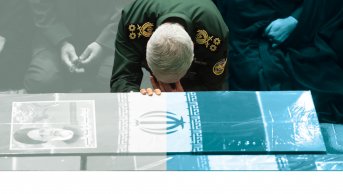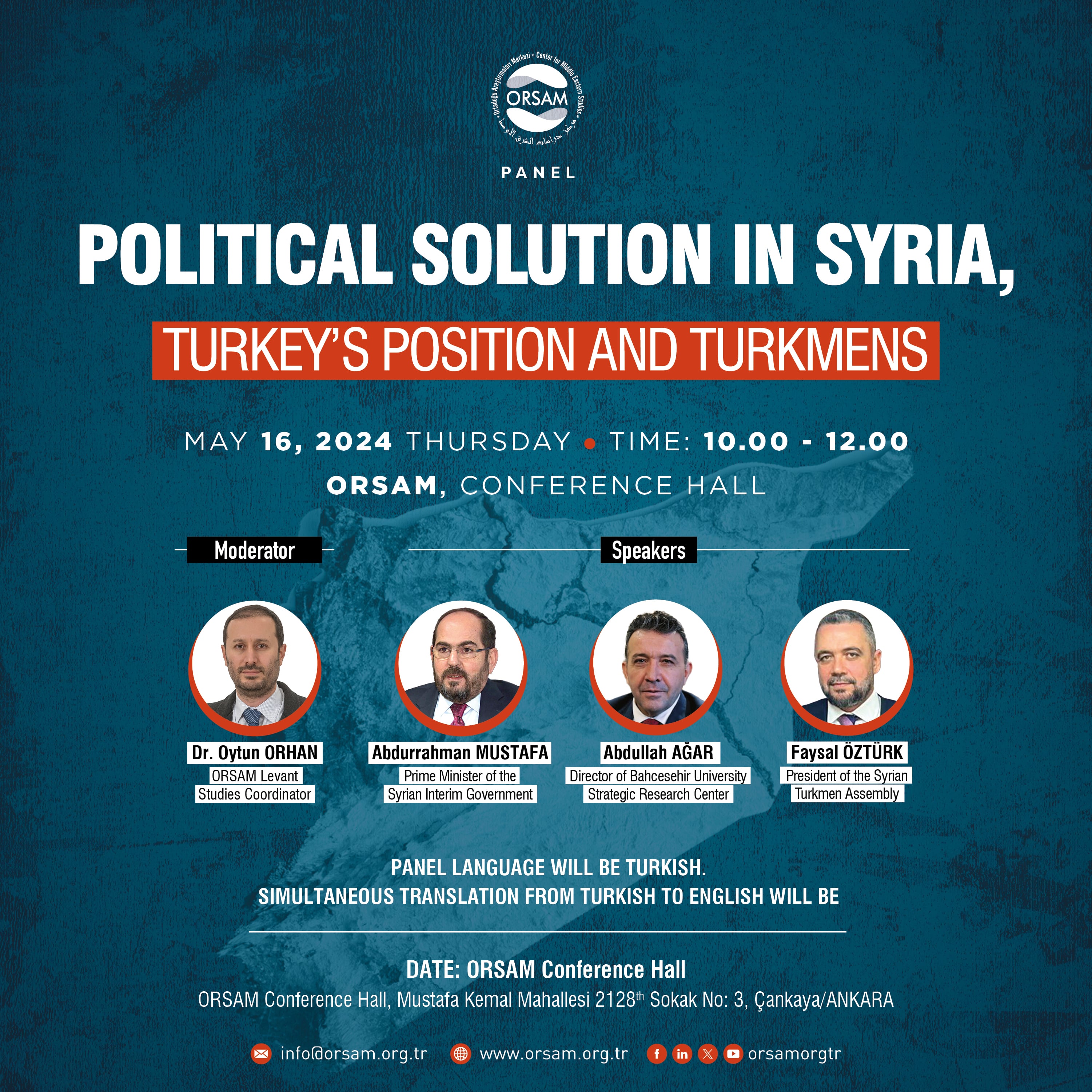Relations That The US Might Develop With Russia Under President Donald Trump and Their Effects On The Middle East

This paper seeks to explore how Donald Trump, new president of the United States elected on January 20, 2017, might redefine the bilateral relations between the US and Russia, and what sort of impacts these relations could possibly have on the Middle East. The paper will first analyze the current situation by examining the way in which the relations between US and Russia have developed during Barack Obama’s presidency. Next, it examines how the expected rapprochement between the United States and Russia during the Trump Administration, could affect the Middle Eastern countries and the management of the crises in this region. The article will conclude by the the importance of the redefined relations between the US and Russia for Turkey.
Background of the US-Russia Relations before Donald Trump’s Presidency
Relations between the US and Russia have always been full of ups and downs in the post-Soviet period. At this point, the most significant factor is the fact that Russia does not have the "superpower" feature that the Soviet Union had vis-à-vis the US. Therefore Moscow faces major problems in managing these unbalanced relations of power with the United States. In the post-Soviet period, Russia has had to establish relations with the United States not as a 'superpower' but as a 'regional power'. The US, as the only 'superpower', has not always taken the regional interests of Russia into account and occasionally intervened in its internal affairs. These changes have resulted in the ups and downs in the US-Russia bilateral relations.
Barack Obama, who became President of the United States in 2008, paid great attention to the development of partnership perspective with Russia in bilateral relations in the early years of his administration. Initially, Obama pursued a policy of strengthening bilateral relations with Russia which had been undermined after the Russo-Georgian War that broke out in the last months of George W. Bush's tenure. Since this policy aimed at restoring bilateral relations back to their original position, it was named as the “reset policy”. In addition to bilateral relations, Obama also managed to develop the US-Russian relations in multilateral issue areas such as Afghanistan, NATO-Russia Council and the fight against international terrorism.
The rapprochement in the US-Russia relations at the beginning of the Obama era came to an end in the fall of 2013 due to the dispute over Ukraine. After annexing the Crimean territory of Ukraine in March 2014, Moscow explicitly supported the separatists who took the control of Donbass and Luhansk regions in eastern Ukraine. This brought Russia’s relations with the West to the lowest level in the post-Cold War era.
The Obama administration’s adoption of sanctions on Russia, which was coordinated with the EU complicated the US-Russia relations even further. As the Minsk-2 Agreement has not been effectively implemented by the parties, the parties continued to insist on maintaining their positions. There was also a risk that the current unresolved situation would be transformed into a permanent dispute as in the Transnistria issue. Although the sanction policies of the US and the EU have had some impact on the Russian economy, this impact is not strong enough to make Russia change her existing policies.
Key Points and Priorities in Donald Trump's Policy towards Russia
Donald Trump, the candidate of the Republican Party, won the Presidential elections held on November 8, 2016 in the United States. This was welcomed as a very positive development by the Russian President Vladimir Putin. The fact that Hillary Clinton, candidate of the Democratic Party in the election campaign, vowed to pursue an anti-Russian policy while Trump’s claim that most of the problems in the world could be solved through cooperation with Russia played an important role in Putin’s positive response to the US election results.
The Republican Party, which also won a great victory in the Congressional elections held simultaneously with the Presidential elections in the United States, regained power both in the House of Representatives and the Senate, allowing Donald Trump to reshape the foreign policy as he desires.
The Democratic Party and its candidate for the Presidential elections, Hillary Clinton, experienced a huge disappointment due to the election results. They accused Russia of playing an indirect role in the US elections and therefore, intervened in the domestic and foreign policies of the US by supporting Donald Trump.
However, contrary to the claims of the Democratic Party, the main reason behind the rapprochement between Trump and Putin is not linked mainly to the alleged electoral intervention of Russia but due to the similarities between the main approaches and priorities of the two leaders' regarding world politics.
First of all, while both leaders tend to prioritize the national interests of their countries, they think that non-ideological behaviour is more suitable for the rational conduct of foreign policy. Trump and Putin believe that Obama's view of Russia was based on ideological assumptions. Both leaders also think that there are many opportunities to deepen the cooperation between Russia and the US if they conducted a version of political realist foreign policy.
Relations between the US and Russia have always been full of ups and downs in the post-Soviet period. At this point, the most important factor is the fact that Russia does not have the "superpower" feature that the Soviet Union had vis-à-vis the US and faces major problems in managing these unbalanced relations of power with the United States.
Besides, the two leaders believe that most of the international issues could be solved through 'big bargains' to be brokered between the US and Russia. While this could provide Russia with an effective compensation for its loss of the "superpower" status, it could also eliminate the need for the United States to bargain with small local actors that often have conflicting and uncompromising positions in resolving regional problems.
Another common point shared by Trump and Putin is that they both share similar perceptions of threats. They also believe that their existing alliances for countering these threats do not reflect the real interests and priorities of the United States and Russia. However, the US under President Obama perceived Russia as the greatest threat, and the European countries and institutions as their most prominent allies. Trump and Putin, on the other hand, believe that Russia does not pose real threat to the United States and that the security problems in the European continent originate from the internal problems of the European countries. Moreover, for Trump, Russia may emerge as an balancer against China which is perceived as an increasing threat for the United States.
Finally, according to Trump and Putin, the most crucial security issue and threat is the global terrorism emanating from the Middle East. Both leaders share a consensus over the need for revitalizating the cooperation between George W. Bush and Vladimir Putin in the aftermath of the 9/11 terrorist attacks. In this way, the two countries could cooperate in the struggle against the common threats and develop a common ground for resolving their various problems diplomatically.
Possible Implications of the Redefined US-Russia Relations for the Middle East
Among the regions where the effects of the anticipated rapprochement between Trump and Putin can be seen directly, the Middle East comes first. The Middle East is the most crucial region that Trump could change the policies that the Obama administration followed. Since the Obama administration had problems with its allies in the Middle East for different reasons at different stages of the process called the 'Arab Spring', Trump’s key priority seems to be one of restoring relations with the traditional allies of the US and to strengthen its position through developing a constructive relations with Russia in the Middle East.
In this context, it seems that the relations with Israel which were put on the back burner in the Obama period will become of primary importance. It is expected that Trump could move the US Embassy in Tel Aviv to Jerusalem. Even though Vladimir Putin could continue to pursue a more balanced policy between Israel and the Arab countries, he could consider Trump’s Israel-centric policy in the Middle east. The growing role of the Israeli citizens of Russian origin in Israeli politics could also be a catalyst for the rapprochement among Israel, the United States and Russia.
Trump may pursue a more confrontational policy towards Iran. Trump's opposition to the Nuclear Deal signed with Iran can be seen as a sign that serious crises may arise in this area. This situation may be seen as an opportunity for Russia to further increase Iran's growing dependence on Moscow. However, it should be expected that Putin will not risk the bilateral relations with the United States for the sake of Iran. The Russian-Iranian relations may take a more pragmatic character in the coming years.
It could be also expected that the most challenging issue area for the new US-Russia relations seems to be the management of the Syrian crisis. Moscow could continue to use the Syrian issue as the most effective bargaining chip as the Syrian crisis plays a major role in Moscow's re-emergence as an effective game-changer in the Middle East. During the diplomatic negotiations for the solution of the Syrian crisis, it is expected that Trump and Putin have several shared positions .
First of all, while both leaders tend to prioritize the national interests of their countries, they think that non-ideological behaviour is more suitable for the rational conduct of foreign policy.
In particular, it is expected that the fight against terrorist elements could become a priority issue. It is not clear at this stage how the future of the Assad regime will take shape and the moderate opposition elements could be integrated into the system after the diplomatic solution is reached. In this context, Russia is expected to make some concessions over Syria in return for similar concessions from the US over the crises in Ukraine as well as the post- Soviet space.
Relations between the United States and Russia during the Trump presidency could have important implications for Turkey's bilateral relations with both of these countries as well as for Turkey's role in the Middle East. The development of Russian-Turkish relations in the context of the normalization process are expected to proceed further in the foreseeable future too. Likewise, the US under President Trump is expected to strengthen Washington’s relations with Turkey which experienced a short period of crisis during Obama’s presidency. Turkey's role in the Middle East could become even more important in the fight against international terrorism. Turkey is expected to fight more effectively against the regional sources of instability along with the US and Russia in the Middle East. Turkey is also likely to develop its cooperation with Israel mainly in the energy sector. Resolving the Syrian crisis in such a way as to alleviate Turkey's security concerns could also be a significant contribution to the strengthening of cooperation among the US, Russia and Turkey.
To conclude, when Donald Trump takes oath of office on 20 January 2017 and assumes the presidency, he is expected to give priority to the redefinition of bilateral relations between the US and Russia with a new cooperative perspective. Russia under Vladimir Putin's leadership seems to be very positive about it. Not surprisingly, the development of bilateral relations between the US and Russia could have considerable effects on the Middle East as well as the other regions. With the participation of Turkey in this evolving partnership between the US and Russia, it could be much easier to realize a more stable international environment in the Middle East.







